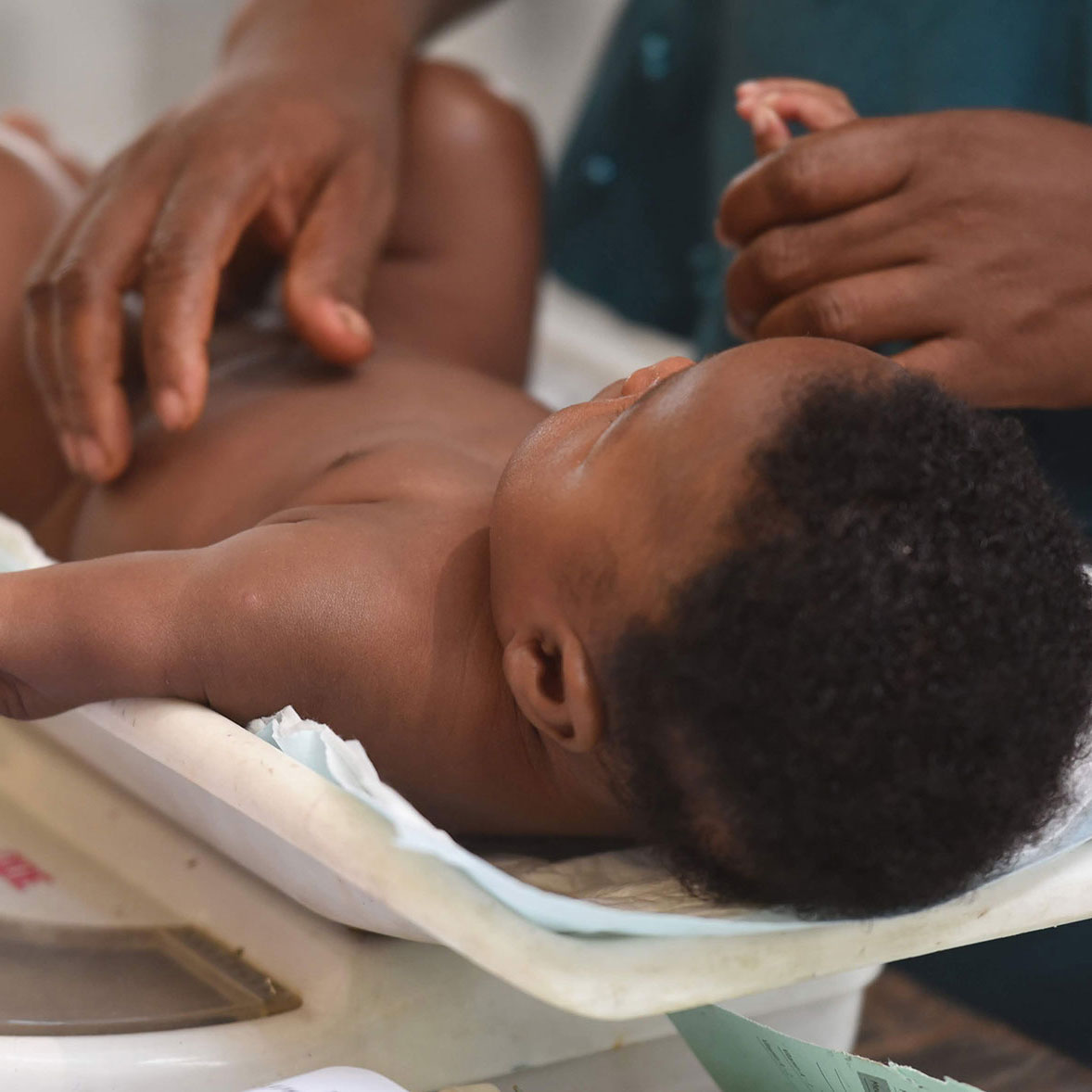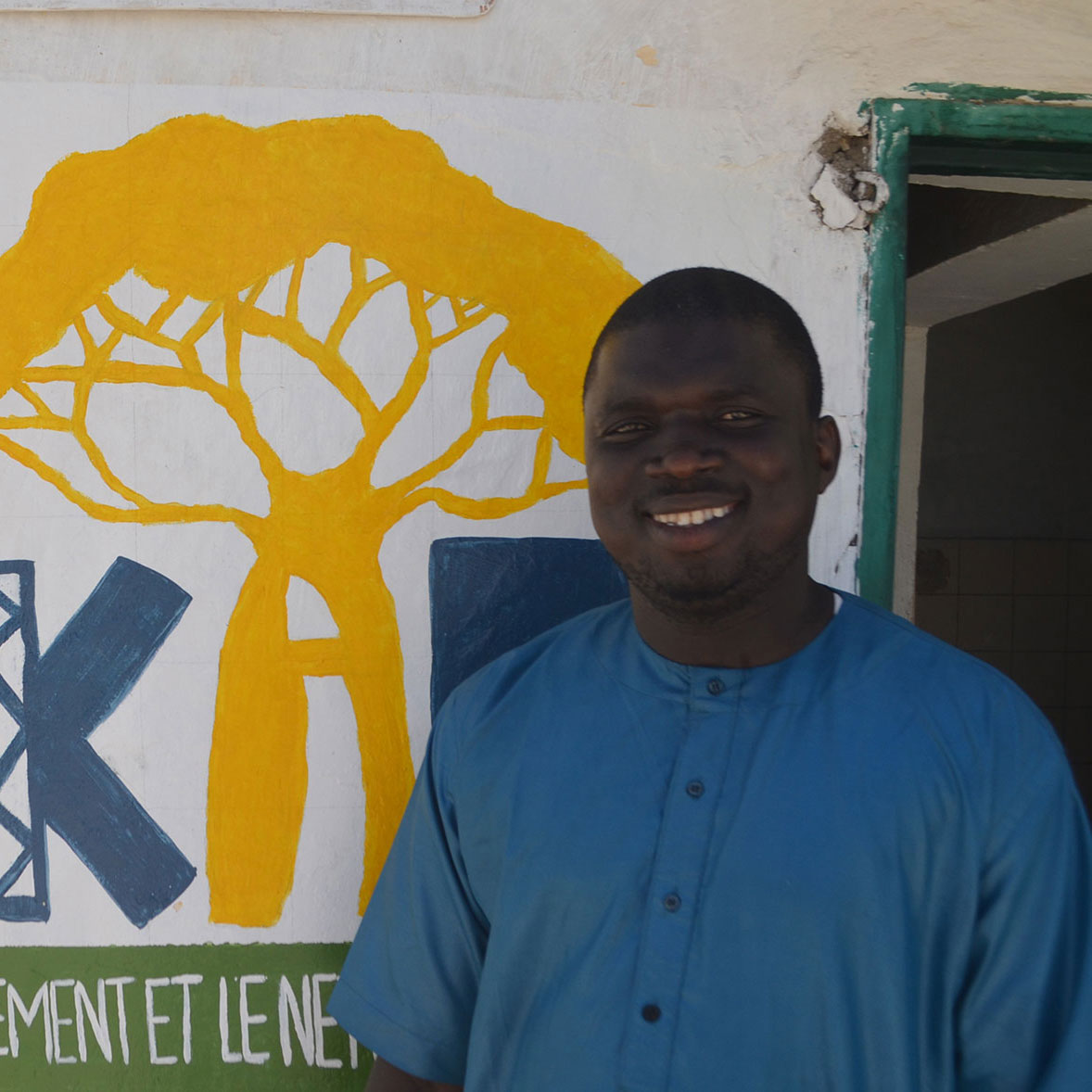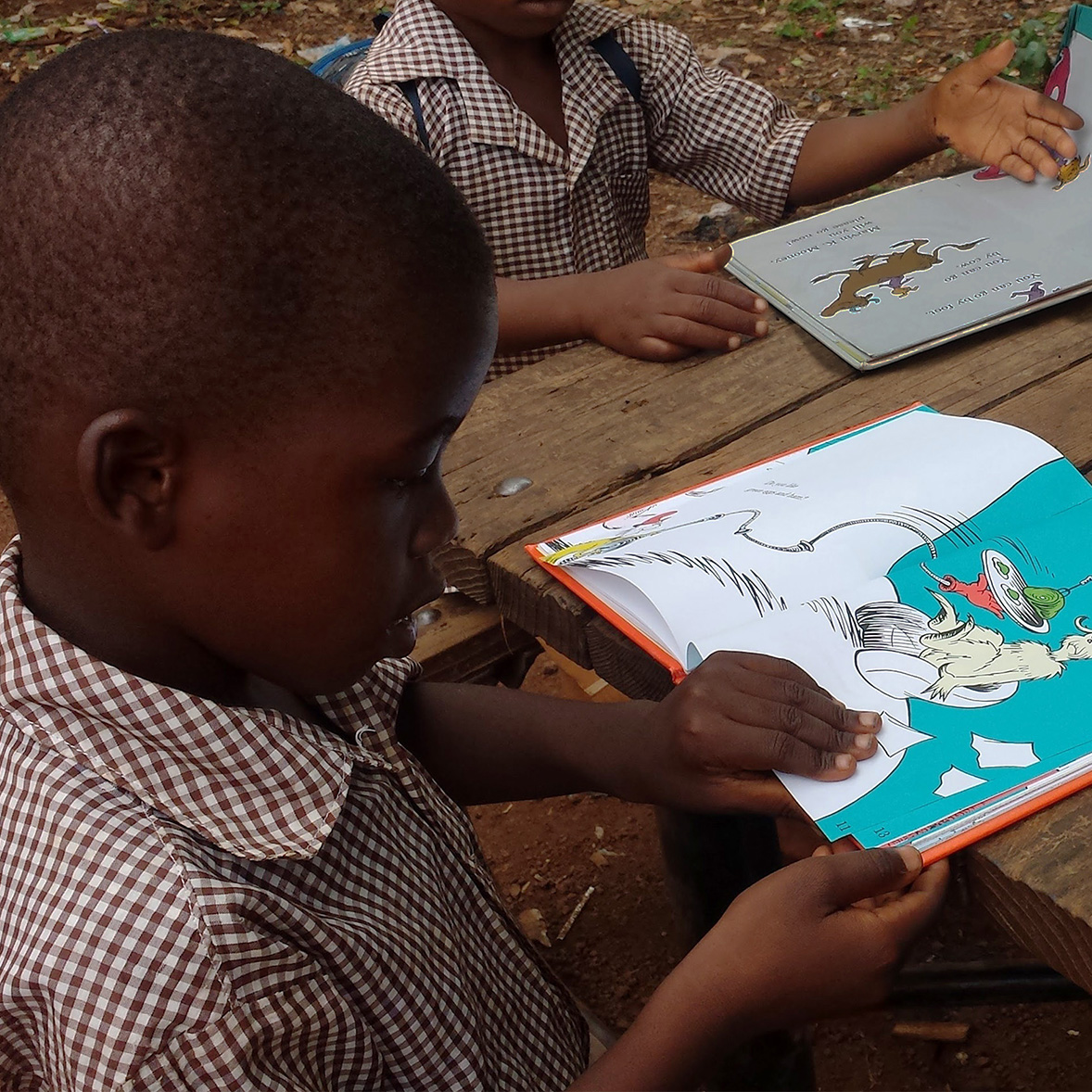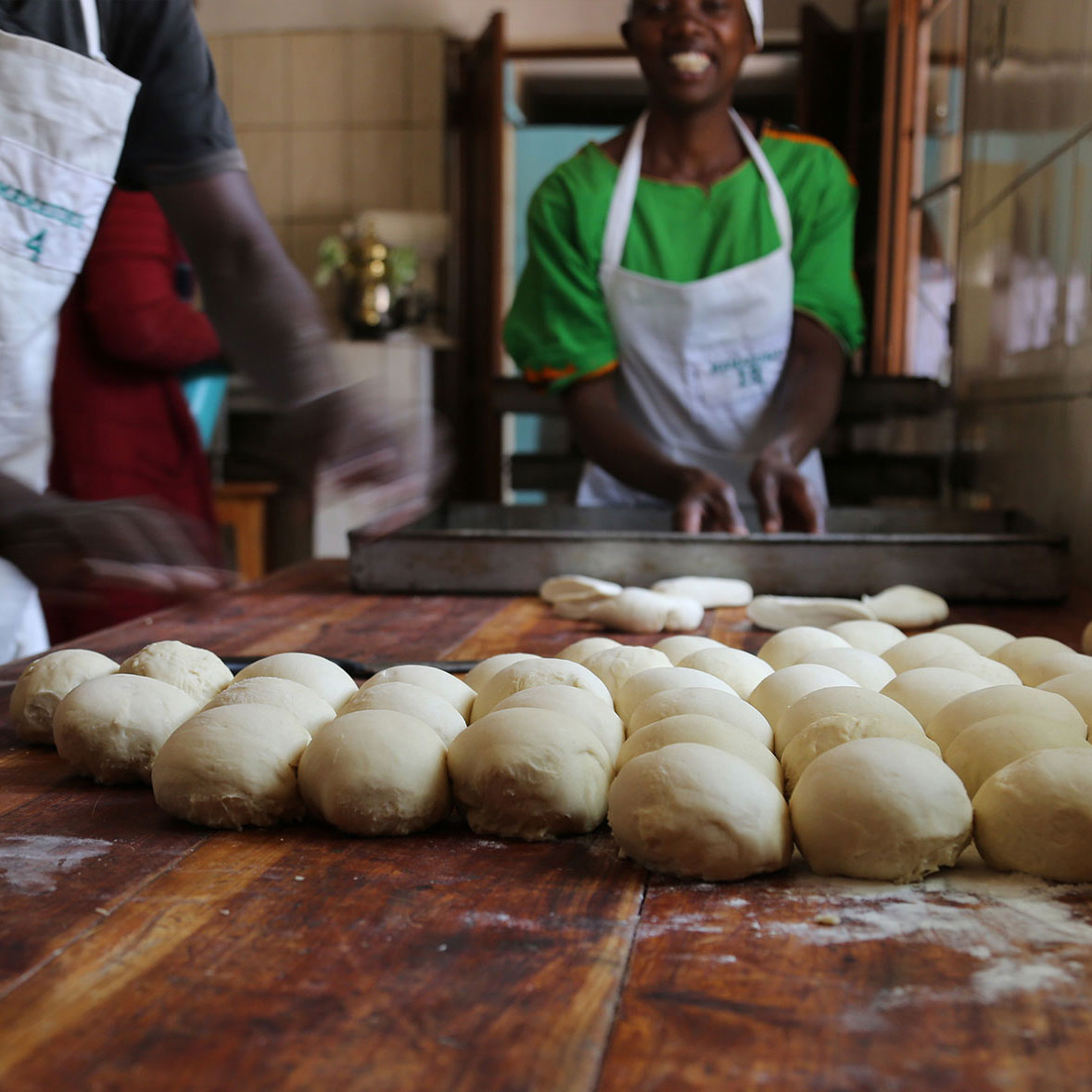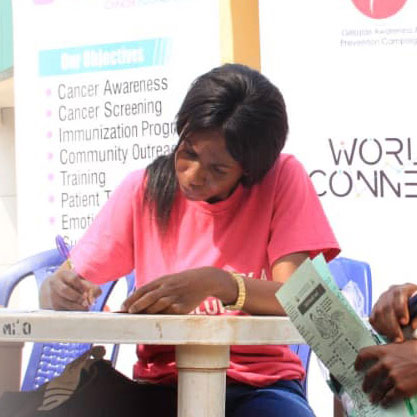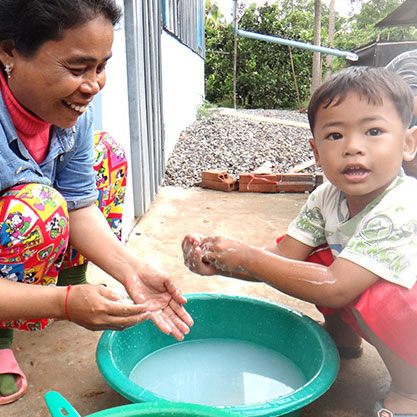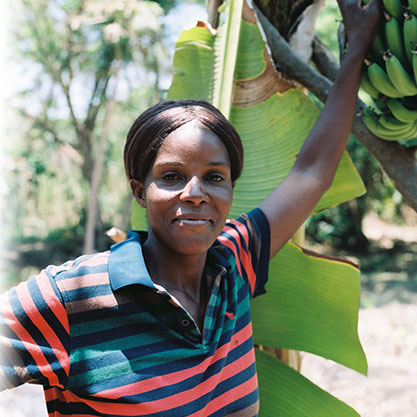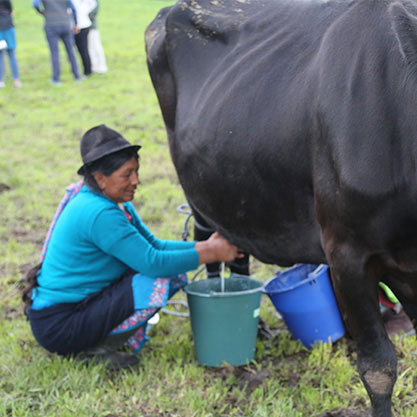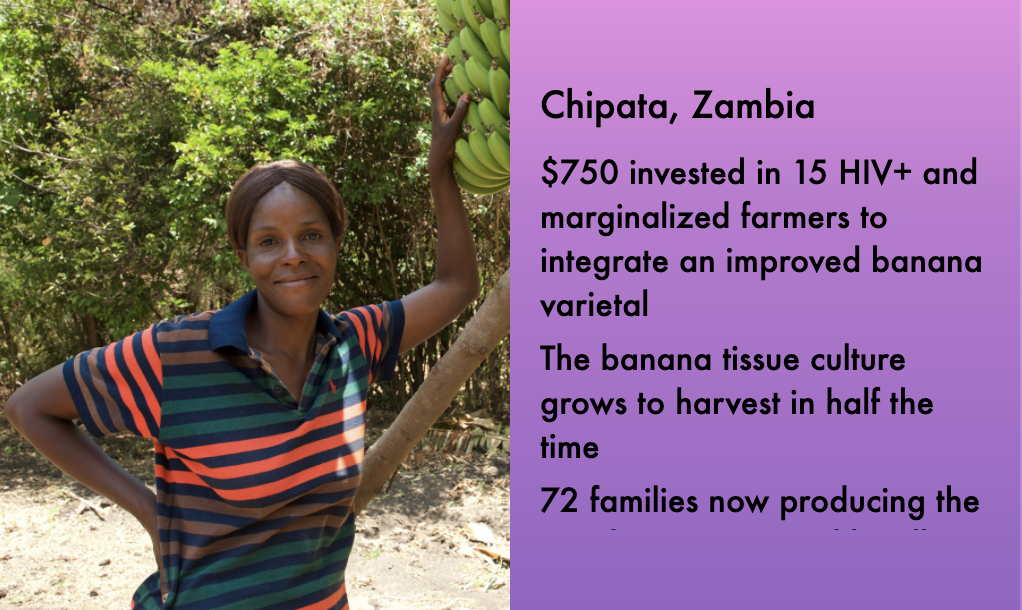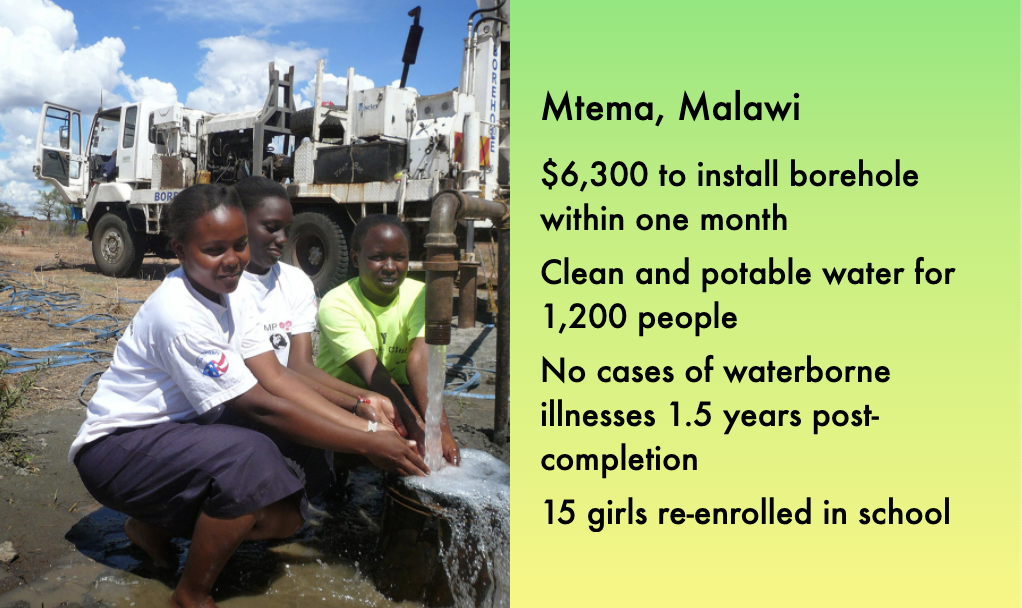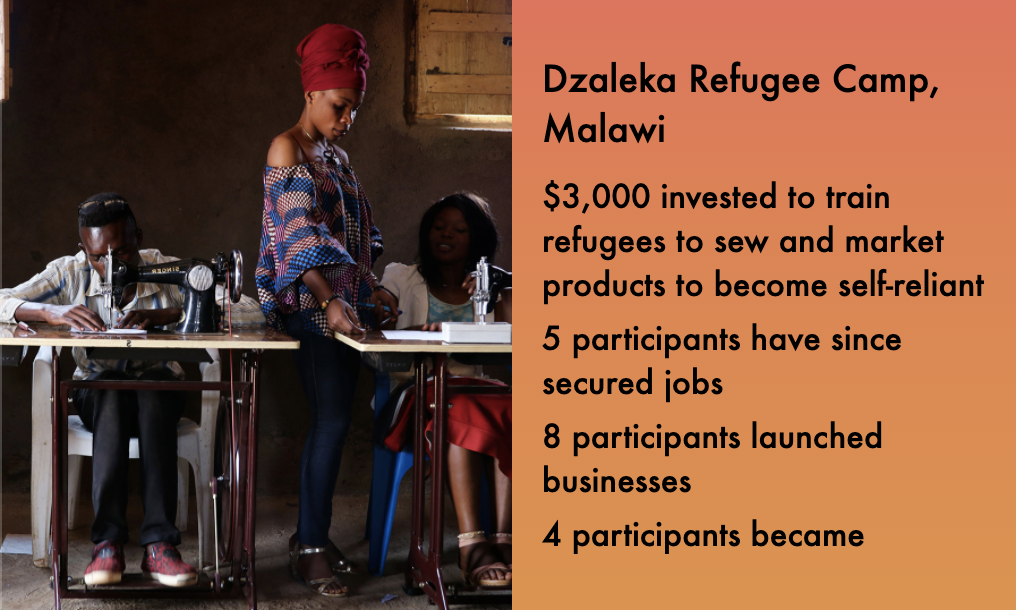In Kenya, 34% of women deliver their babies at home. In Singorwet, a rural community in western Kenya, that number was as high as 96%. In 2012, Samwel Koech, the chairman of the Singorwet Health Dispensary, worked with a local Peace Corps Volunteer, Andrea Flynn-Schneider, to apply for $1,776 from World Connect to purchase delivery equipment f... or Singorwet Dispensary. The Dispensary purchased a birthing bed and delivery instruments, and the following year received a second grant from World Connect for $4,298, to build a new room for maternity and delivery services and staff housing. While we may not know all of the factors behind the growth and success of the Singorwet Dispensary, World Connect's investments catalyzed vital development progress for the community.
In July 2019, the clinic was upgraded from Health Dispensary to Health Center by the Ministry of Health. This change brought more nurses, a pharmacist, lab technicians, a radiologist, and physiotherapist along with an increase in the County government’s operations and medication budget allocation. As a result of the improvements made to the facility, the percentage of women choosing to give birth at the Singorwet Health Center increased 12.5x. Nurses estimate that 50% of women in the area are now delivering at the Center compared to the 4% of women who delivered their babies at the clinic prior to the improvements. As of 2019, the Singorwet Health Center provides maternity services for free. With the grant money from World Connect, the local leaders in Singorwet transformed a small clinic with minimal resources and one nurse into a Health Center that serves and educates thousands of women per year.
Prevalence of trash in Senegal. Abdou Ndao, a local professional in Kaffrine, Senegal, recognized how the ubiquitous presence of trash degraded the quality of life and civic pride of his fellow community members. In 2015, Ndao wanted to turn Kaffrine’s waste management problem into an economic opportunity. With a $2,500 World Connect investmen... t and collaboration with a local Peace Corps Volunteer, Stefanie Smith, Ndao helped launch an eco-business called SEN-ECOKAF to manage local trash collection and disposal. Within two months of the business launch, SEN-ECOKAF had nearly 300 households paying for its trash collection services and seven employees on payroll. By mid-2018, SEN-ECOKAF had 12 employees, 562 households, and its trash collection services were reaching six of the eight neighborhoods in Kaffrine. Households report that they are paying 3x less for a higher quality and more reliable service than was available prior to the company’s launch. SEN-ECOKAF had profit margins of 7.5% and 13.5% in 2017 and 2018, respectively, and has experienced rapid growth since its launch in 2015. As of 2019, between its household and business clients, SEN-ECOKAF collects 104 tons of trash per year. In 2019, SEN-ECOKAF expanded into local schools and public institutions and received a second grant of $4,600 from World Connect to support the development of a recycling and repurposing project within the community.
In 2018, Mercy Kafotokoza connected with a community she knows well, Nkhafi Village, Traditional Authority Chakhaza in Malawi, to facilitate a conversation about development priorities. To her surprise, she learned that what the village prioritized most was having a library. With $5,000 from World Connect, more than $3,500 in co-investment fro... m the community, and an additional $5,000 in leveraged investment from the Segal Family Foundation, a World Connect partner in Malawi, Mercy oversaw the construction of the Ebenezer Community Library, the only community library and study space in an area with a population of 156,985 people.
The Ebenezer Community Library was opened in July 2019 providing study space to primary, secondary and university students, as well as solar power to keep students connected. The library sees an average of 85 students per day. Aside from these students, the library is also open to adults who access health education materials and newspapers to keep themselves updated on events in the country, with records showing over 100 additional visitors per week. The library has also created employment for three community members full time, who have been trained in library and information services.
In 2019, Mercy, through her organization, "Wandikweza," again worked with the community to win an additional grant, this time $10,000 for construction of a Community Youth Center in Nkhafi village, providing HIV/AIDS counselling and testing, family planning, and primary health care, and impacting 1,440 people per month.
Mercy says, "World Connect believed in the community's vision of an educated community, and now that belief has led them to greater success, achieving access to primary health care. World Connect investment has truly unlocked our potential, these efforts are life changing and sustainable."
In 2014, Jacqueline Umurerwa used her own savings of $700 to launch the Mama Dunia Cooperative in Bumba Village in rural Rutsiro District, Rwanda. The cooperative aimed to unite women, provide opportunities for women to generate income, and ultimately reduce domestic conflict and violence by empowering women with earning power. In 2016, Jacque... line worked with a local Peace Corps Volunteer, Sophia Hart, and the cooperative received a $5,000 grant from World Connect to establish The Mama Dunia Bakery. Within the first months of operations, the eight women cooperative members doubled their income to $2/day. After two years, the cooperative multiplied their income 75x. Today, cooperative members each make $40-$60 USD per month. In 2019, The Mama Dunia Bakery received two more grants from World Connect totaling $12,921 which they used to build a coffee shop and create a delivery service. Today, The Mama Dunia Bakery has contributed to the training of women and the opening of bakeries in seven different locations, three of which are fully owned and operated by Jacqueline.
Dr. Abosede Lewu is an OB/Gyn on a mission to improve women’s health education and access in Lagos, Nigeria. In 2015, Dr. Lewu founded GirlsAide, a nonprofit empowering and supporting girls, women, and young people with health education services in Nigeria’s urban slums. Since 2017, World Connect has awarded three grants to GirlsAide in support of women's health services and health education. The first two grants focused on reducing the incidence of cervical cancer through early cancer detection, teaching mothers about the importance of vaccinating their daughters against HPV, and providing women with pap smears. GirlsAide educated 1,950 women in the urban slums of Nigeria on cervical cancer, screened 600 women, and referred 31 women for treatment for cervical lesions. In 2020, GirlsAide received a third grant from World Connect which Dr. Lewu and her team are using to address the maternal mortality crisis in Nigeria. GirlsAide has so far trained 150 Traditional Birth Attendants to identify early signs of high blood pressure and these birth attendants have so far identified 453 pregnant women with signs of hypertensive disorders, and supported them with further care. GirlsAide recently received a fourth grant to develop COVID-19 response activities.
In Cambodia, three million people lack access to safe water and 6 million lack access to improved sanitation out of a population of 16 million. In Khnach Romeas, a village in rural Cambodia, water insecurity and toxicity are critical issues. In 2015, a teacher at the Khnach Romeas Village Primary School expressed frustration with the lack of sanitation at the Primary School and the resulting poor health of students. In 2016, Sovattanak “Nak” Koeurng, a well-respected teacher and administrator in the community, worked with a local Peace Corps Volunteer, Evalynn Romano, to apply for and receive a grant of $10,900 from World Connect to provide water access to eight primary schools and the Khnach Romeas health center. The money was used to repair old wells and install new ones that included a motor, construct individual water storage tanks, and provide piping to connect the wells to the latrines. In addition, Nak and other educators organized a one-day workshop on hand-washing to be attended by health center staff and teachers. The success of the first project in Khnach Romeas village prompted World Connect to provide a second grant of $4,050 to the community. In 2018, the funding was used to build two latrines with a built-in handwashing station at three primary schools in the village. In 2019, World Connect awarded a third grant of $15,000 to support education in Khnach Romeas village through the construction of a library and an office at the Khnach Romeas Secondary School.
As an orphaned child in Kalichelo village of the Chipata district in the Eastern Province of Zambia, Paul Phiri constantly had to fight to put food on the table for himself and his siblings. Paul founded the PAZESA Horticultural Community, an NGO dedicated to improving the livelihood of people in Chipata District, Eastern Province, Zambia. In 2017, Paul and the PAZESA Horticultural Community worked with Peace Corps Volunteer Alicia Buchanon to receive a $750 grant from World Connect to invest in improving banana crop yield and agricultural success in the Chipata District. Twenty families were trained in sustainable agriculture and procured fifty Williams banana plants, which are a heartier banana varietal than what had been used in the community previously. Since receiving the grant, participating community members have increased their banana yields by 300% and have increased their monthly income 24x, from on average US$5 to US$120/month during the harvest. Farmers learned to produce this type of banana tissue and no longer need to travel 570km to procure tissue from Lusaka, saving additional time and money. Participating farmers have been able to renovate their existing bamboo and mud homes or build new improved homes out of bricks, cement, and tinned roof. Some families procured solar modules for lighting and bought television sets, radios, bicycles, and kitchen utensils. Participating farmers report their ability to send all of their children to school, twelve to boarding schools, and five to University. Others have used their earned income to pay for medical bills, clothes, food, and cooking oil.
In 2016, in San Pablito de Agualongo, a small village in the Northern highlands of Ecuador, indigenous dairy farmers were carrying 20 liters, or 45 pounds, of milk on their backs uphill to a milk station every day, some traveling up to four kilometers. The daily work of these women was exhausting, took a toll on their health, and often resulted in significant discomfort, injury, and deformity over time. In an effort to remedy the time-consuming and strenuous daily hikes for milk, Alberto Toapanta, a local mechanical engineer, enlisted the help of a Peace Corps volunteer, Jonathan VanTreeck, to help implement a project to build dollies for milk transport. In 2016, World Connect awarded a $2,500 grant to “El Lecherito”, the 41 indigeneous women's milk cooperative, which enabled them to build 20 dollies to more easily transport milk jugs uphill. Following the project, El Lecherito experienced a six-fold increase in productivity, their earnings per member rising from $2 to $12 per day. The women’s health improved as well. They reported better energy levels and a significant decrease in chronic back pain. Twelve of the women sold some of their cows and reinvested their milk profits into new enterprises, including rose and strawberry production, catalyzing new economic opportunity for the women and the community.



